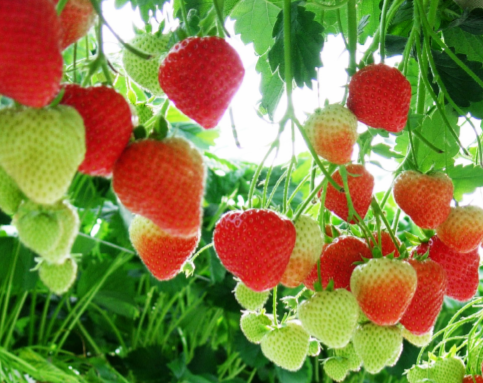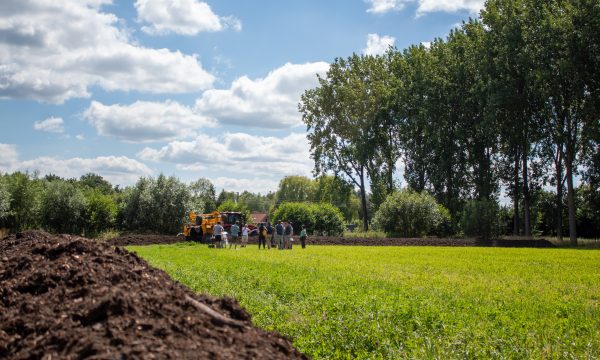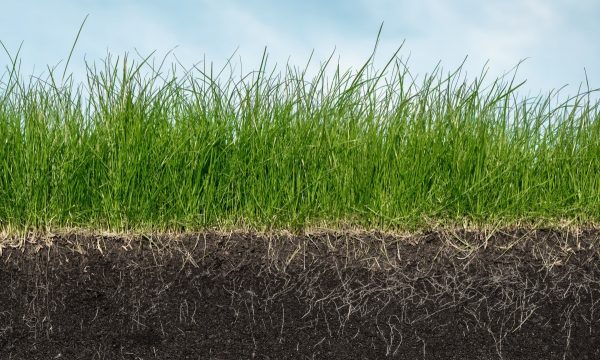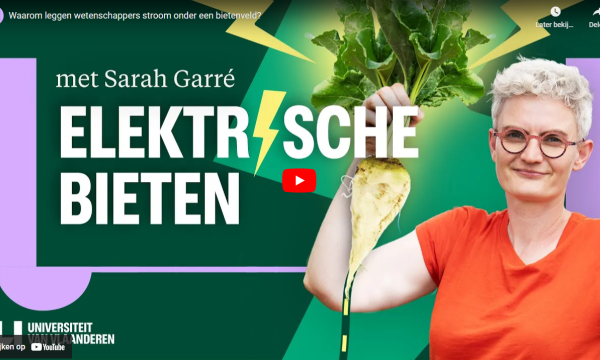Project news Strawberry on a bed of shrimp. Upgrading residual flows from agriculture, horticulture, agri-food and fisheries

Making growing substrates for strawberries and tomatoes in greenhouses more sustainable: that is the goal of the Interreg 2 Seas project Horti-BlueC. For this purpose, products based on residual flows from agro, agri-food and fishery activities are used, such as compost, plant fibers, biochar and chitin.
The extraction, production or transport of peat, coconut bark and rock wool for use in cultivation substrates are under discussion. The production of crop protection products and artificial fertilizers also requires energy and therefore has a significant climate impact. That is why the Horti-BlueC project is looking for ways to make growing substrates for strawberries and tomatoes in greenhouses more sustainable. This research focuses on residual flows from agriculture, horticulture, agri-food and fisheries, such as plant fibers, used cultivation substrates, shellfish waste (source of chitin), CO2 from combustion gases and the woody fraction of green residual flows.
Within Horti-BlueC we want to upgrade chitin from shrimp shells and biochar based on, for example, used cultivation substrates or green residual flows into a soil improver and/or fertilizer, so that the use of chemical crop protection agents and fertilizers can be reduced. In this way, fewer residues remain in the cultivation substrates at the end of the cultivation. Thus, after being used in the cultivation of strawberries or tomatoes, the substrates can also be reused as raw materials. The biochar production also produces heat and CO2, both of which are used in the greenhouse.
This project aims to adopt new techniques for circular horticulture. By developing plant-enhancing cultivation substrates locally on the basis of residual flows, a great deal of climate profit can be achieved and horticulture can take a step further in closing cycles.
Project: Horti-BlueC
Term: 8/2/2018 - 31/10/2021
Funding: Interreg 2 Zeeën-Programma 2014-2020, gecofinancierd door het Europees Fonds voor Regionale Ontwikkeling in het kader van subsidiecontract nr. 2S03-046. ILVO ontvangt ook co-financiering voor dit project van de Provincie Oost-Vlaanderen en de Provincie Antwerpen.
Partners: ECN-TNO, Université de Lille, RKS ADAS UK Ltd, Greenyard Horticulture, Cato Engineering, NIAB EMR, University of Portsmouth, Proefcentrum Hoogstraten
Links:
- https://www.interreg2seas.eu/en/Horti-blueC
- https://www.ilvo.vlaanderen.be/Portals/68/documents/video_horti_BlueC.ppsx
- https://www.ilvo.vlaanderen.be/Portals/92/Documents/Verduurzamen_teeltsubstraten_resultaten.pdf





